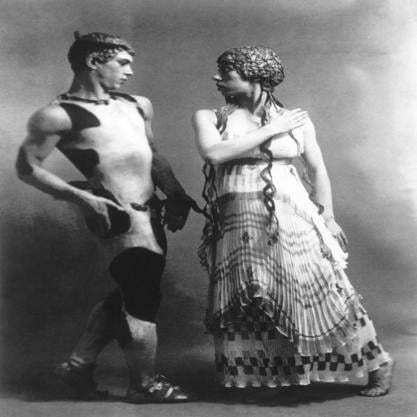Article
Apollon Musagète By Reynolds, Nancy
Article
Apollon Musagète, premiered by Serge Diaghilev’s Ballets Russes in 1928, and most widely known since the 1950s as Apollo, is the oldest work by choreographer George Balanchine still in active repertoire. For its age alone the ballet is significant, but it also marked a new phase in the development of Balanchine’s artistic philosophy. In 1945 he wrote, “Apollo I look back on as a turning point. In its discipline and restraint … the score was a revelation. It seemed to tell me that I could dare not to use everything, that I too could eliminate. I began to see how I could clarify … by reducing what seemed to be multiple possibilities to the one which is inevitable” (Balanchine qtd in Lederman 1975: 81). Such was Balanchine’s influence that what was a turning point for him was also a turning point for ballet in the twentieth century. The score that so influenced Balanchine was composed, by Igor Stravinsky, for a small string orchestra. Diaghilev described it as “an amazing work, extraordinarily calm, and with greater clarity than anything he has so far done, [with] filigree counterpoint [a]round transparent, clear-cut themes, all in the major key; [it is] somehow music not of this world, but from somewhere above” (Diaghilev qtd in White 1979: 342).

